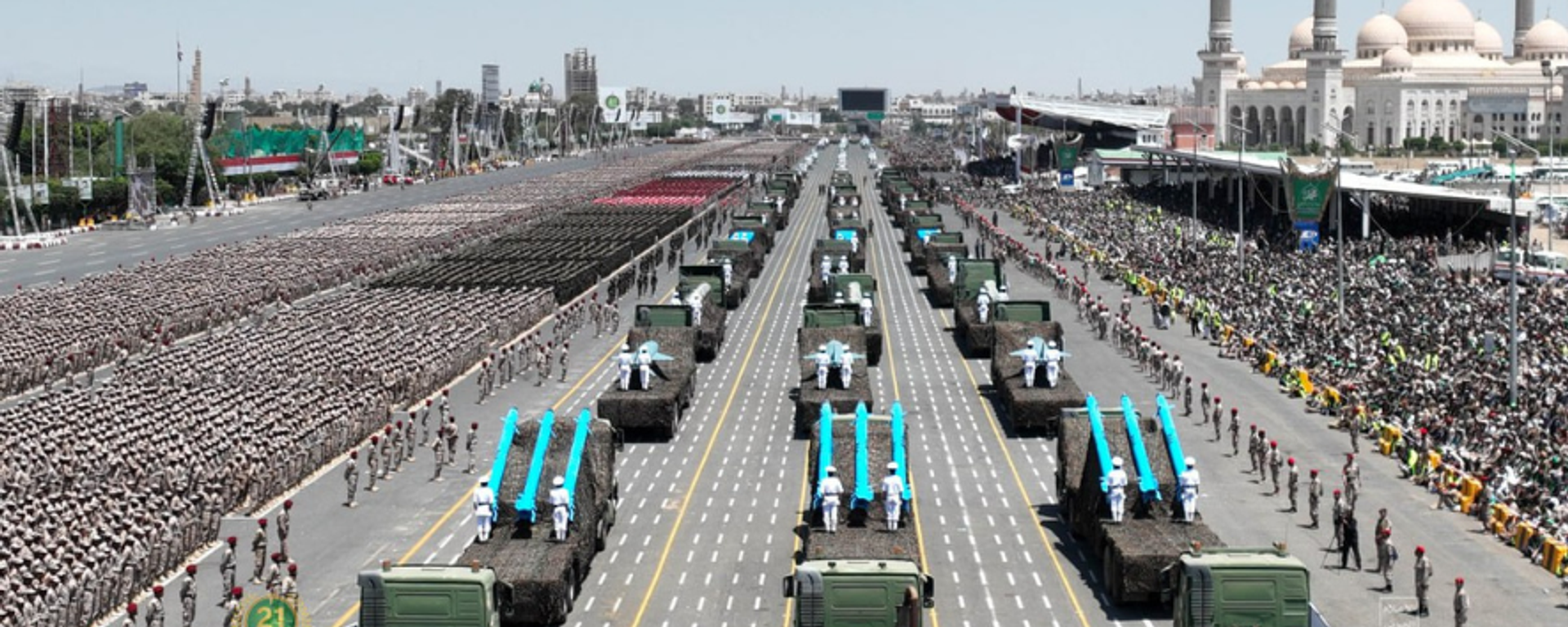Despite American Perception, Iran Does Not Control Yemeni Houthis

© AP Photo / Osamah Abdulrahman
Subscribe
On Thursday, multiple media outlets reported on secret meetings between Iranian and US officials with Omani officials acting as a conduit. According to the reports, the US asked Iran to instruct the Yemeni Houthis to stop their blockade in the Red Sea.
However, Iran has made it very clear that they will not negotiate on behalf of their allies, Dr. Seyed Mohammad Marandi, a professor of English literature and Orientalism at the University of Tehran, told Sputnik’s The Critical Hour on Thursday.
“It’s obvious that the Iranians are not going to negotiate on behalf of Yemen,” Marandi explained, pointing to when Saudi Arabia and Iran were negotiating to reestablish diplomatic relations. “There were years of negotiations to reestablish ties. The sticking point was that the Saudis wanted Iran to negotiate on behalf of Yemen because [Saudi Arabia was] at war with Yemen… and the Iranians insisted that they [would] not negotiate on their behalf… ultimately, the Saudis removed that precondition.”
Marandi insisted that contrary to media reports, “No negotiations between Iran and the United States took place [regarding Houthi attacks in the Red Sea] because the Iranians would not accept such negotiations.”
There was no need for the UK to carry out its air strikes against Houthi targets in Yemen, which Britain conducted on orders from the US, Matthew Gordon-Banks, a former UK MP and retired research fellow of the UK Defense Academy, told Sputnik.
— Sputnik (@SputnikInt) January 14, 2024
“The UK has no geopolitical… pic.twitter.com/uIVhQahAN2
To stop the Houthi attacks in the Red Sea, the US simply has to stop supporting Israel’s genocide in Gaza, Marandi argued. “[The Houthis] have said from the very beginning when the genocide in Gaza began that they will block shipping to Israel, to Israeli ports, in order to put pressure on the regime to stop the genocide and they said they will do it in accordance with the Genocide Convention,” Marandi explained. “They are actually working within the framework of international law and their position is a deeply moral position… Yemen has said repeatedly that if the genocide stops, their actions in the Red Sea will stop.”
Meanwhile, the US and its “sidekick, the British” are working to help the Israeli genocide, including by killing Yemeni citizens, Marandi said.
However, that has caused problems for those countries who were added to Yemen’s blockade list in response. “[The US and UK] created a problem for themselves,” he explained. “In this upside-down world that we live in today, the United States is attacking Yemen in order to help the Israeli regime continue with genocide unimpeded.”
The reverberations of that decision and the US insisting that shipping companies go around Africa instead of through the Red Sea, is hurting more than just the US and its allies. “What the Americans want to do, is they want to make this a crisis, a global economic problem,” Marandi said. “They want everyone to suffer so that they can gain leverage and put pressure on Yemen to end the blockade… for the sake of Israel and for the sake of the Israeli genocide, they’re willing to make everyone suffer.”




